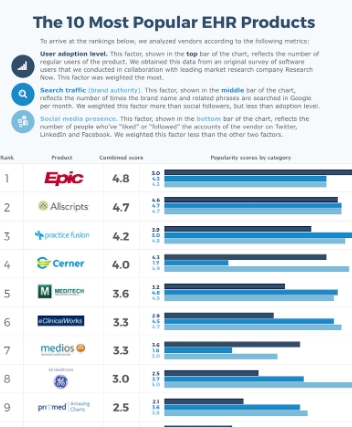In the fast-paced world of healthcare, choosing the right Electronic Health Record (EHR) system can make all the difference in providing efficient and effective patient care. With numerous options available, navigating the top EHR systems can be overwhelming for healthcare professionals.
Understanding Your Needs
Before diving into the world of EHR systems, it’s important to first assess your specific needs and requirements. Consider factors such as the size of your practice, the specialties you cater to, and any specific features or functionalities that are essential for your workflow.
Researching Top EHR Systems
Once you have a clear understanding of your needs, research the top EHR systems available in the market. Look for systems that have a good reputation, positive user reviews, and a track record of success in similar healthcare settings.
Comparing Features and Functionality
When comparing different EHR systems, pay close attention to the features and functionalities they offer. Consider whether the system includes customizable templates, interoperability with other systems, real-time patient data access, and secure data storage capabilities.
Ease of Use and Training
Ease of use is a crucial factor when selecting an EHR system. Look for systems that are intuitive and user-friendly, as this will help streamline your workflow and minimize the learning curve for you and your staff. Additionally, consider the training and support options provided by the EHR vendor to ensure a smooth implementation process.
Cost and ROI
While cost is an important consideration, it’s essential to evaluate the Return on Investment (ROI) of the EHR system. Look beyond the initial upfront costs and consider the long-term benefits and efficiencies that the system can bring to your practice.
Security and Compliance
Data security and compliance are paramount when it comes to EHR systems. Ensure that the system meets all necessary security and privacy regulations, such as HIPAA. Additionally, look for systems that offer encryption, access controls, and regular security updates to protect patient data.
Making Your Decision
After thorough research and evaluation, make an informed decision based on your needs, budget, and preferences. Consider seeking input from your colleagues or industry experts to gain additional insights and perspectives.
In conclusion, navigating the top EHR systems requires careful consideration and research. By understanding your needs, comparing features, evaluating ease of use, considering cost and ROI, and prioritizing security and compliance, you can find the perfect EHR system that will enhance your practice and improve patient care.

